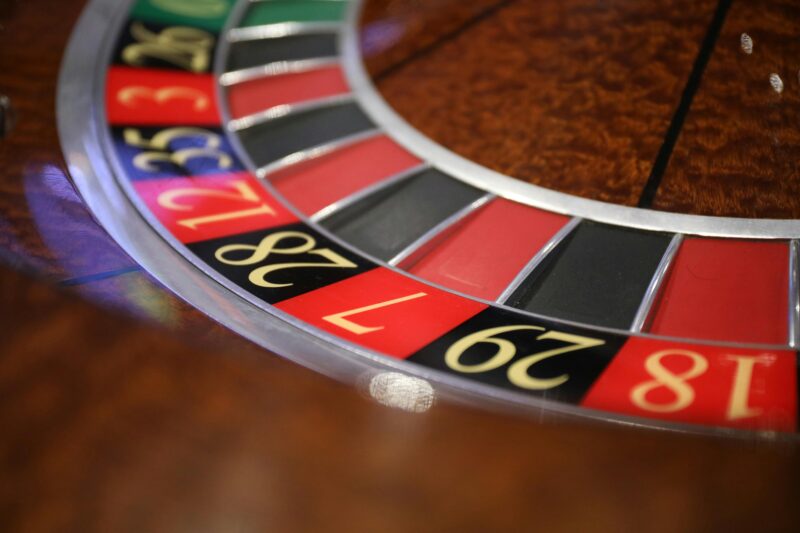The wheel doesn’t care. It doesn’t remember the last spin. It doesn’t owe you a win because you’ve lost five in a row. The ball lands where it lands. And yet, people keep looking for patterns, for ways to outthink something that isn’t thinking at all.
Roulette is a game of chance. But chance doesn’t mean chaos. At platforms like Jackpot City, you’ll find players who know exactly what they’re doing—picking their bets, managing their bankrolls, avoiding the traps. They’re playing roulette, but they’re also playing a bigger game: control over impulse, risk over recklessness. And if roulette isn’t their thing, they can turn to other casino games—blackjack, poker, baccarat. Each one offering a different kind of challenge. But for those who love the spin, who want to make their money last, who believe there’s a right way to bet even when the outcome is out of their hands, strategy matters.
Betting Systems: Promises and Pitfalls
Most roulette strategies fall into one of two camps. There are the progressive systems, where you change your bet after every spin, trying to ride streaks or recover losses. Then there are the flat-betting systems, where you keep your wagers consistent, stretching out your play and limiting the damage of a losing streak.
The Martingale System is the best-known of the progressive bets. You double your stake after every loss, and when you win, you recover everything and start over. In theory, you can’t lose forever. In practice, you absolutely can. Table limits exist. Bankrolls run out. The longer the losing streak, the faster you burn through your money. A few unlucky spins and suddenly you’re betting more than you ever planned to, just to win back a single unit.
Then there’s the Paroli System, the so-called “Reverse Martingale.” Instead of doubling after a loss, you double after a win. This keeps losses small and lets you capitalize on winning streaks. But it’s based on a dangerous assumption—that streaks exist at all. That a win leads to another win. That the wheel has a memory. It doesn’t.
Flat Betting: Slow, Steady, and Sensible
If progressive betting is about chasing patterns, flat betting is about patience. No doubling, no desperate recoveries. Just smart wagers placed consistently.
The D’Alembert System is one approach—raise your bet by one unit after a loss, lower it by one after a win. It’s a slow climb instead of a wild swing, but it still assumes something unreliable: that wins and losses will balance out in a predictable way. They won’t. Not always.
A more structured option is the Fibonacci System, based on the famous sequence where each number is the sum of the two before it (1, 1, 2, 3, 5, 8…). If you lose, you move forward in the sequence; if you win, you step back two places. It’s a methodical way to recover losses without the extreme risks of Martingale, but it doesn’t change the fundamental truth: no system changes the odds of the game. The house edge is always there.
Pick the Right Roulette Game
Not all roulette wheels are created equal.
The European wheel has a single zero. The American wheel has two. That second zero more than doubles the house edge—from 2.7% to 5.26%. Over time, that difference is huge. If you have a choice, play European.
Then there’s live dealer roulette. Unlike digital versions, where an algorithm determines the results, live roulette happens in real-time, with a real dealer spinning a real wheel. The pace is slower, giving you more time to think. It also removes any lingering doubts about randomness—everything happens in front of you. For those who prefer strategy over speed, live tables are often the better choice.
Bankroll Management: The Only Strategy That Always Works
Even the best plan is worthless if you ignore your bankroll.
Roulette is fast. A few bad bets can drain your funds before you even settle into the game. The best players set limits—on their bets, their losses, their time at the table. The 5% Rule is a simple guide: never bet more than 5% of your total bankroll on a single spin. If you start with $200, your max bet should be $10. This keeps you in the game longer, giving you more chances to hit a streak.
Another key rule: know when to walk away. Set a loss limit before you start. If you hit it, stop. No “one more spin.” No chasing losses. The wheel keeps spinning long after you leave. You don’t have to be there for every turn.
Play Smart, Play Measured
Roulette isn’t blackjack. There’s no card counting, no statistical edge. But that doesn’t mean you can’t play wisely. The best strategies aren’t about “winning” the game—they’re about staying in it, playing longer, minimizing risk. If you want high risk, high reward, progressive betting is an option. If you prefer control, flat betting keeps things steady. And if you’re serious about making your money last, bankroll management is the only non-negotiable strategy.
But remember: the wheel doesn’t owe you anything. It has no memory, no pattern, no conscience. Play accordingly.
FAQs
Do online roulette strategies actually work?
They can help you manage your bets, but they don’t change the game’s odds. The house always has the edge.
What’s the safest betting strategy?
Flat betting is the safest approach—it limits losses and keeps your bankroll steady.
Which roulette game has the best odds?
European roulette has better odds than American roulette because it has only one zero.










